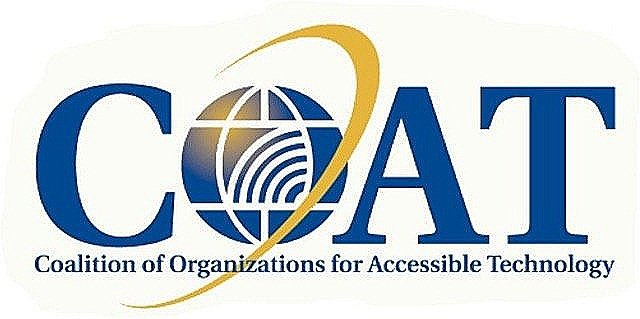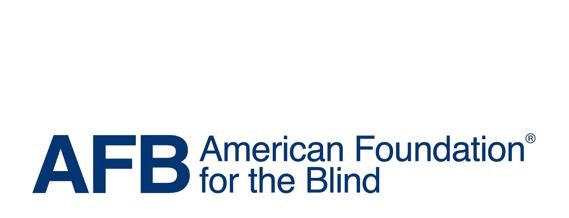What is “COAT”?
COAT is the Coalition of Organizations for Accessibility Technology
We got our start in 2007, fighting for inclusive digital technologies such as high-speed broadband, online video, and wireless and other Internet-based products and services. Our efforts to close gaps in access to emerging communication and video programming technologies were successful with the passage of the Twenty-First Century Communications and Video Programming Accessibility Act (CVAA) in 2010. Since passage of the CVAA, disability access to many of these technologies has successfully ensured our societal participation and connectivity. However, new and future technologies, such as those that rely on artificial intelligence and augmented reality, can threaten this access if federal accessibility protections do not cover these new innovations.
In 2022, COAT came back together to continue this mission of ensuring the accessibility of evolving technologies. Our efforts are now dedicated to passage of the Communications, Video, and Technology Accessibility Act, or the “CVTA.” This legislation will ensure that people with disabilities have full access to the ever-expanding video programming options on TV and the Internet. It will also guarantee that our communities are included in all aspects of daily living through accessible communication technologies as these continue to evolve. Our overriding goal is to ensure accessibility regulations keep pace with emerging technologies, so that people with disabilities are not left behind nor excluded from today’s technological advances.
COAT continues to grow, adding national, state, and community-based organizations and their allies across the United States. COAT‘s organizations and advocates (listed below) are fighting for legislative and regulatory safeguards that will ensure full access to technology by people with disabilities.
What we do
We are working to pass the CVTA with protections and provisions that ensure accessibility regulations keep pace with emerging technologies so that people with disabilities are not left behind nor excluded from today’s technological advances. Our coalition continues to grow with national, state, and community-based organizations and their allies across the United States. COAT is made up of advocates fighting for legislative and regulatory safeguards that will ensure full access to technology by people with disabilities.
Meet the COAT Steering Committee
-

National Association of the Deaf
-

Telecommunications for the Deaf and Hard of Hearing
-

Communication Services for the Deaf
-

American Council of the Blind
-

Hearing Loss Association of America
-
Perkins School for the Blind
-
American Foundation for the Blind
CVTA Supporters
3Play Media
Access Living
AccesSOS
AGBell
American Cochlear Implant Alliance
American Council of the Blind
American Foundation of the Blind
American Association of People with Disabilities
Association of Assistive Technology Act Programs
Association of Late Deafened Adults (ALDA)
Blinded Veterans Association
Carroll Center for the Blind
Cerebral Palsy and Deaf Organization
Common Cause
CommunicationFIRST
Communication Service for the Deaf
Conference of Educational Administrators of Schools and Programs for the Deaf (CEASD)
Deaf in Government
Deaf Seniors of America (DSA)
Dicapta - Accessible Communication Developers
Easter Seals
Gallaudet University Alumni Association (GUAA)
Hearing Loss Association of America
Kansas Commission for the Deaf and Hard of Hearing
Metropolitan Washington Ear
National Association of the Deaf
National Association of State Agencies of the Deaf and Hard of Hearing (NASADHH)
National Association for State Relay Administration
National Federation of the Blind
National Organization on Disability
Northern Virginia Resource Center for Deaf and Hard of Hearing Persons (NVRC)
Ohio Association of the DeafBlind
Ohio Deaf Friends of the Library
Perkins School For The Blind
Registry of Interpreters for the Deaf (RID)
TDIForAccess, Inc.
The American Association of the Deaf-Blind (AADB)
UCC Media Justice
United Spinal
Verbit
VITAC
Voiceitt
World Institute on Disability



